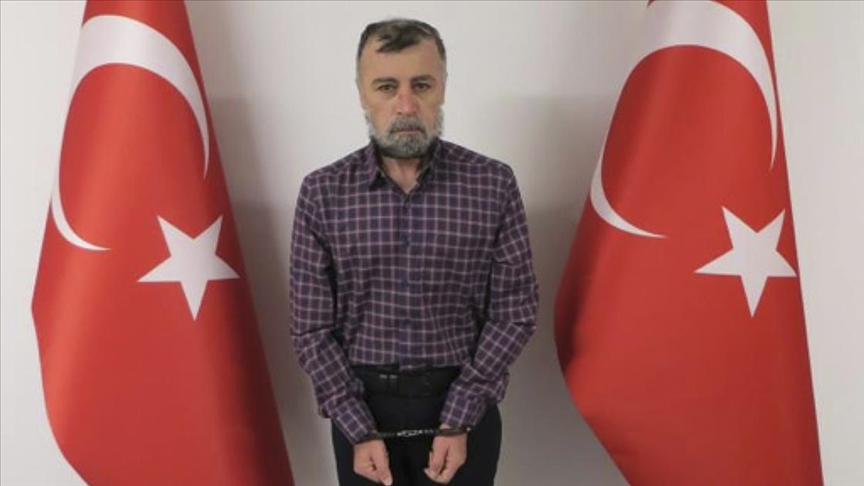A recent reasoned judgment by a Turkish court regarding a case involving the transportation of explosives to the Islamic State in Iraq and Levant (ISIL) in 2015 has revealed a complex network of connections implicating military officers, Turkey’s National Intelligence Organization (MİT) and suspected elements within the Turkish government, shedding light on an operation that saw 14.5 tons of explosives and related materials transported to ISIL-controlled territories in Syria, concealed in sacks of onions, according to a special report by the Halk TV news website.
Nuri Gökhan Bozkır, a former military officer who was rendered from Ukraine by MİT in late January 2022 and arrested by a court the next month on accusations of involvement in the unsolved murder of academic Necip Hablemitoğlu, who was killed on Jan. 18, 2002, in front of his house in Ankara, has been identified as the team leader responsible for the operation to deliver the explosives to ISIL.
Bozkır, along with several other officers, were released by the court hearing the Hablemitoğlu murder trial following the presidential and parliamentary elections on May 14, leading to speculation about the case being a possible bargaining chip between shadowy figures from within the Turkish military and Turkish President Recep Tayyip Erdoğan, who successfully overcame one of the most significant challenges to his rule last month by winning a presidential runoff against a united opposition.
Ahmet Yasin Güneş, another defendant in the explosives case and an active duty military officer at the time of the operation, is also a notable figure. Güneş served as a secret witness in a case involving MİT illegally sending weapons and ammunition to Syrian rebels.
Partly based on his testimony, in 2021 Turkey’s Supreme Court of Appeals upheld the lengthy jail sentences handed down to 18 defendants for conducting a 2014 investigation into trucks operated by MİT that were allegedly carrying arms to Syria.
In January 2014 Adana prosecutors ordered gendarmes to conduct a search of a truck on its way to the Syrian border after receiving an anonymous tip. Trucks belonging to MİT that were allegedly carrying weapons to jihadists in Syria were caught near the border, sparking a political firestorm in Turkey about the role of the Turkish spy agency in arming rebel factions in Syria.
Turkey’s Justice and Development Party (AKP) government and then-prime minister and current president Erdoğan strongly denied the claims, saying the trucks were carrying humanitarian aid to Turkmens in northern Syria.
Sedat Peker, a Turkish crime boss who in 2021 made scandalous allegations about the relationship between state actors and the mafia in a YouTube video series, claimed that SADAT International Defense Consultancy, a paramilitary organization established by former Erdoğan aide Adnan Tanrıverdi, sent weapons to the al-Qaeda-linked al-Nusra Front in Syria in 2015.
Güneş’s testimony in the 2023 trial hinted at the Turkish government’s knowledge of the explosive trade with ISIL in 2015.
During the trial, Güneş revealed that he met Bozkır at the request of İrfan Fidan, the prosecutor in the MİT case. Fidan, who has since become a member of Turkey’s constitutional court, allegedly instructed Güneş to monitor Bozkır’s actions regarding the trucks destined for Syria.
The court’s judgment revealed that planning for the seized explosives began around a month before they were intercepted, with locations in Isparta and Ankara serving as the planning sites. The explosives were sourced from a mining company called Trend Madencilik, which the investigation revealed had a significant amount of explosive materials missing from its warehouse.
The court sentenced Bozkır to almost 22 years for his role, while Güneş received a 15-year sentence for “supplying weapons to a terrorist organization.”
Bozkır previously claimed he faced torture at the hands of MİT operatives for 24 days following his rendition from Ukraine.
These recent revelations about the transportation of explosives to ISIL have raised questions about the involvement of various parties and institutions.
Bozkır’s special forces background coupled with the fact that parties involved in the supply of explosives testified that they thought they were working for a MİT black operation, raises further questions about the Turkish government’s role in the weapon trade with ISIL.
